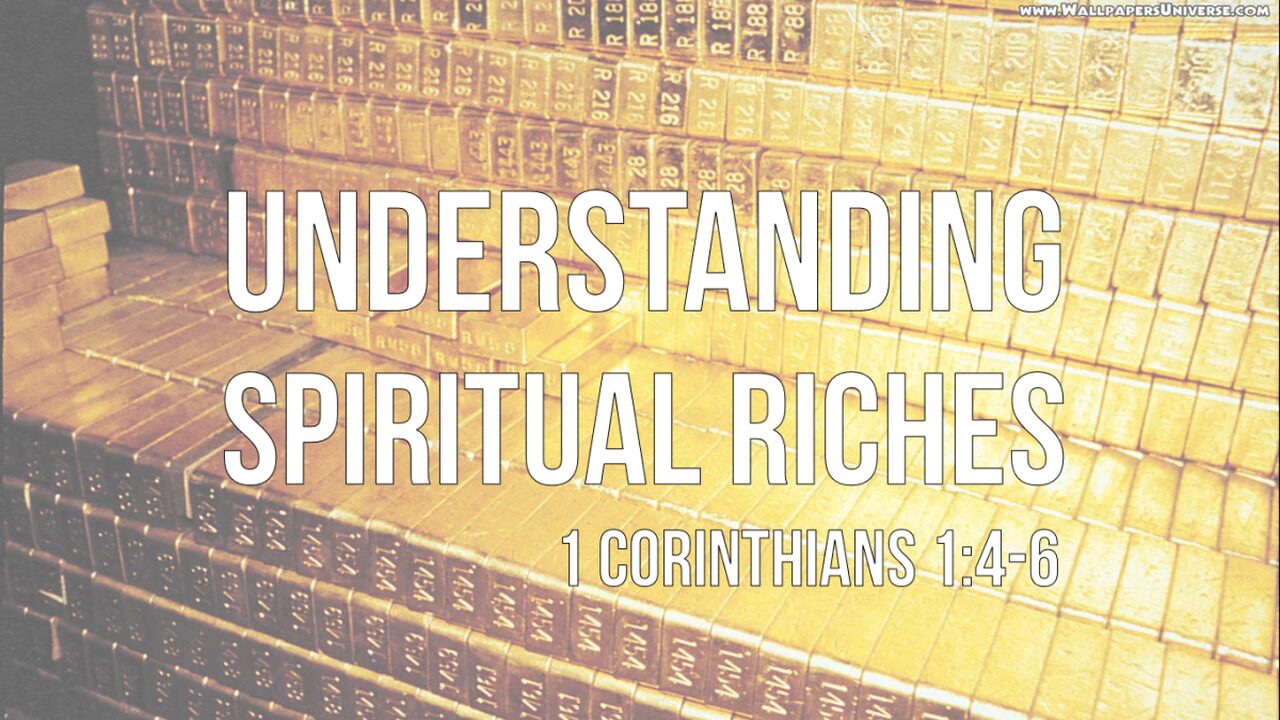Martin Bobgan
Psychological counseling theories and therapies have given Americans a new way of thinking and have turned our country into a therapeutic culture of the self—where the self and how it feels about itself are at the center of meaning. People from coast to coast have embraced a psychological mindset that puts emotional deprivation and woundedness as the root cause of nearly every personal and social problem. This mindset has the potential to make everyone into a victim needing the services of the ever-expanding mental-health system. Fifteen years ago Charles Sykes wrote a book titled A Nation of Victims: The Decay of the American Character, in which he says:
The ethos of victimization has an endless capacity not only for exculpating one’s self from blame, washing away responsibility in a torrent of explanation—racism, sexism, rotten parents, addiction, and illness—but also for projecting guilt onto others.1
Sykes also says, “The impulse to flee from personal responsibility and blame others seems far more deeply embedded within the American culture.”2 In fact, he declares, “The National Anthem has become The Whine,” and explains, “Increasingly, Americans act as if they had received a lifelong indemnification from misfortune and a contractual release from personal responsibility.”3
Psychological Mindset
The psychological mindset evolved out of the fairly recent development of clinical psychology (including psychotherapy, counseling psychology, and marriage and family counseling), which was birthed in colleges and universities around 1950 and expanded through politics and money.4 Since that time, it has exploded to the extent that Dr. Ellen Herman describes psychology’s popularity and impact on the Western world this way in her book titled The Romance of American Psychology:
Psychological insight is the creed of our time. In the name of enlightenment, experts promise help and faith, knowledge and comfort. They devise confident formulas for happy living and ambitious plans for dissolving the knots of conflict. Psychology, according to its boosters, possesses worthwhile answers to our most difficult personal questions and practical solutions for our most intractable social problems
Herman also says:
In the late twentieth-century United States, we are likely to believe what psychological experts tell us. They speak with authority to a vast audience and have become familiar figures in most communities, in the media, and in virtually every corner of popular culture. Their advice is a big business.6
The kind of psychology that carries this power to turn people into victims is psychotherapy with its underlying psychologies, such as Sigmund Freud’s theory of the unconscious and Abraham Maslow’s hierarchy of needs, along with an estimated 500 different counseling systems and their theories. After all, who has a perfect life, certainly none of the theorists, all of whom developed their systems out of their own personal lives and creative imagination?7
In her book Manufacturing Victims: What the Psychology Industry Is Doing to People, Dr. Tana Dineen reveals what the so-called caring profession has become. She begins her book with the following words and the rest of her book proves her point:
Psychology presents itself as a concerned and caring profession working for the good of its clients. But behind the benevolent facade is a voracious, self-serving industry that proffers “facts” which are often unfounded, provides “therapy” which can be damaging, and exerts influence, which is having devastating effects on the social fabric.8
Dineen also says:
It is not news to say that psychology has become an influential cultural force or that society is becoming more and more filled with people who consider themselves victims who are psychologically needy in one way or another.
What is news is that psychology is manufacturing most of these victims; that it is doing this with motives based on power and profit (emphasis hers).9
While, indeed, there are real victims, the psychotherapeutic mindset has trivialized the horrors that some people have experienced by so expanding the meaning that now everyone qualifies if they want to. The role of victim can actually be quite enticing. Besides qualifying for sympathy from friends, engaging in endless psychological therapy centered on self, and gaining exoneration from responsibility and guilt, being a victim provides a new identity of being the hero or heroine in one’s own drama of overcoming horrendous obstacles in the grand quest for psychological healing. Rather than having to face the ugly fact of their own sin without excuse or reason or blame-shifting, they choose to be victims. Dr. Carol Tavris and Dr. Elliot Aronson describe the usefulness of victimhood that comes from recovered memory therapy in their book titled Mistakes Were Made (but not by me): Why We Justify Foolish Beliefs, Bad Decisions, and Hurtful Acts. They say:
Why would people claim to remember that they had suffered harrowing experiences if they hadn’t, especially when that belief causes rifts with families or friends? By distorting their memories, these people can “get what they want by revising what they had,” and what they want is to turn their present lives, no matter how bleak or mundane, into a dazzling victory over adversity. Memories of abuse also help them resolve the dissonance between “I am a smart, capable person” and “My life sure is a mess right now” with an explanation that makes them feel good and removes responsibility: “It’s not my fault my life is a mess. Look at the horrible things they did to me.”10
Psychological Mindset Christianized?
Yes, we are surrounded by a nation of victims with a therapeutic mindset, but wait—we are Christians! How does this affect those of us who have been given new life through faith in the finished work of Jesus Christ on the cross? What does this have to do with the Gospel and with living the Christian life? Plenty!
Almost as soon as the romance of psychology took hold of Americans, it was embraced by Christians who believed psychological counseling theories and therapies would be useful for helping Christians. These psychological counseling ideas were brought into pastoral counseling classes in numerous seminaries. Next came the “Christian psychologists” who devised a plan to integrate counseling psychologies theories and therapies with Christianity, both for counseling believers and for instructing the saints about how to live the Christian life. And now, what is the advice people hear when they are struggling with emotional distress and problems of living? “You need counseling.” And, what they mean is professional counseling, psychotherapy and its underlying theories of the self. Why? Because they believe a lie that, in essence, says that the cross of Christ, the Word of God, the work of the Holy Spirit, and the fellowship of believers are not enough for people with emotional or relational problems of living and that Christians need what only psychological theories and therapies can do. This is because of what Sykes calls:
The triumph of the therapeutic mentality … which insisted upon seeing the immemorial questions of human life as problems that required solutions. The therapeutic culture provided both in abundance: The therapists transformed age-old human dilemmas into psychological problems and claimed that they (and they alone) had the treatment.11
This lie about the Word of God, the work of the Holy Spirit, and the fellowship of the saints not being sufficient for dealing with so-called psychological problems of living is promoted by numerous leaders and believed throughout the church. One of them is Dr. Bruce Narramore, Distinguished Professor at Rosemead School of Psychology at Biola University, who says: “I think the critics [of psychology] need to ask, ‘Why are people so interested in psychology?’ The thought is that we ought to go back to the old way. But the old way wasn’t working.”12 Narramore says this without proof or evidence and thereby implies that for nearly 2000 years God failed to supply His children with the means of dealing with problems of living.
The integration of the theories and therapies of counseling psychology has succeeded in turning the body of Christ into a bunch of victims. If this were a book title, the subtitle could be “The Demise of Biblical Ministry.” In its eager embrace of this kind of psychology, the church has left its first love and fallen for the wisdom of man and “philosophy and vain deceit” (1 Cor. 2; Col. 2:8). That this kind of psychology is now regular fare in churches across America can be seen in the observation of Dr. Frank Furedi in his book Therapy Culture, in which he says: “A study of ‘seeker churches’ in the US argues that their ability to attract new recruits is based on their ability to tap into the therapeutic understanding of Americans.”13 He sees this as a preoccupation with the self, and, indeed, that is what it is all about—self!
All About Self
The focus of psychological therapy is on self and its problems from the perspective that the self is essentially good, but wounded emotionally by circumstances and other people. Therefore more and more Christians are seeing themselves as innocent victims with their “mistakes” and problems of living being due to other people and circumstances beyond their control. Worse yet, some, who have been convinced that the source of their problems is what happened to them as young children, spend months and years in therapy and/or in so-called inner healing. Some are trying to gain insight by remembering real events and some are searching for supposedly forgotten memories of abuse and neglect. Others are encouraged to see a figure of Jesus add something to the memory to heal or change it, but, since this is all in their imagination, they end up with a false Jesus. The idea in all of this kind of counseling and inner healing is that self has been harmed in some way and must be helped and healed.
Psychotherapy thus attempts to fix the self so that its so-called essential goodness can be experienced and expressed. The psychological mindset sees the problem as on the outside. The solution is found within the self, albeit with the help of those who have special psychological knowledge. Self is central and must be nurtured with self-love, self-esteem, and self-worth, all of which are supposed to lead to self-fulfillment, but which generally increase self-absorption, self-centeredness, and self-indulgence.
In contrast, the Word of God presents the truth about mankind, that we are sinners by nature and therefore not essentially good in ourselves. Romans 3:10 says: “There is none righteous, no not one” and verse 23 says, “All have sinned and come short of the glory of God.” The problem of sin comes from within and the solution comes from outside ourselves, from God Himself through the cross of Christ, who bore our sin, and purchased our new life, which is received by grace through faith and lived by grace through faith.
Victim or Sinner?
One of the main goals of much counseling psychology is to relieve guilt so that individuals can feel better about themselves and thereby supposedly handle their lives more effectively. Helping an individual see himself as needy, emotionally wounded, and having been harmed or disappointed by others is one convenient way to sidestep personal responsibility, sin, and guilt. This is the opposite of the Bible, which provides the true remedy for sin and the only remedy for the human condition through Jesus Christ and all He accomplished to rid one of sin and guilt.
The whole of Scripture points to the Lamb of God slain before the foundation of the world. Its focal point is Jesus Christ satisfying God’s wrath against sin and procuring forgiveness and new life for believers. Christianity is all about living the new life and reckoning oneself dead to the old life. Christianity is not about focusing on problems and on other people’s sins and shortcomings, and it is not about dredging up the past to fix the present. The Christian life is about confessing one’s own sin, walking according to the new life in Christ, and “forgetting those things which are behind, and reaching forth unto those things which are before” towards the goal of the “high calling of God in Christ Jesus” (Phil. 3:13,14).
The early church had the one remedy for everyone’s present problems and past circumstances: the cross of Christ! The magnitude of each person’s sin against God from the cradle to the grave is more than anyone could bear to imagine, but Jesus took it all upon Himself so that he could give every believer new life. He, who knew no sin, died in the place of those who were by nature sin. He did not just come to fix the flesh (the old nature). He came to put it on the cross so that believers, by identifying with Him, could reckon themselves dead to the old and alive to the new.
Everyone has been adversely affected by the sins of others to some degree, but the adverse effects or the sinful tendencies from parents or sinful ways learned from them reside in the flesh (old nature). Our flesh is therefore the problem, not something outside ourselves, either past or present. Therefore, the Bible does not teach people to nurture their so-called “inner child” or to develop self-esteem or to probe their early childhood years to look for ways that adults failed them in any way. The Bible does not advise anyone to remember and re-experience past pain, disappointments, or even abuse for the sake of personal or spiritual growth. The Bible does not suggest that people must be healed emotionally before they can believe God or before they can grow spiritually.
Considering the grievous circumstances and the childhoods of many of the Gentile Christians, the early church had plenty of potential “victims” (many born and raised in slavery with the accompanying sexual and physical abuse and being treated as less than human). But, did the church treat them as victims needing to heal their emotional wounds or to remember the pain of the past in order to know God and to grow spiritually? No! The Bible does not portray mankind as victims, but as sinners. Jesus died for sinners, not victims!
The Way of the Cross
The way of the cross is a totally different way of dealing with serious life issues and problems of living. Rather than trying to remember the past and somehow rework painful memories through therapy or so-called inner healing, Christians need to reckon themselves dead to the past by identifying with Christ’s death and to live according to their new life in Christ. Everything needs to be taken to the cross instead of relived and talked about. Nevertheless, many of the people who promote this senseless return to the past agree that Christ died for our sins, but insist that many Christians still need healing from the past. However, digging up old memories for the purpose of changing one’s present life is counterproductive to the cross and in effect denies the finished work of Christ.
Jesus said, “It is finished.” So we say to fellow Christians: Identify with those words when you bring sin to the cross, your own sin and the sins committed against you. Recognize that Jesus suffered the pain and eternal consequence of those sins. He felt the pain and agony of every sin you have committed and the pain of every sin committed against you. He took it all and said, “It is finished.” If a memory with its pain comes back, treat it as a temptation from the enemy, who wants to rob you of the truth of what Christ did and to undermine your identification with Him, both in His death and resurrection. Satan always works to keep Christians struggling in the flesh, because that is where they are the most vulnerable and because he hates the life of Christ in every believer. He is most pleased when Christians walk according to the flesh or their old nature. Therefore, the devil is pleased with all forms of psychological therapy and related forms of inner healing, including Theophostic Prayer Ministry.14
Think Biblically, Not Psychologically
Christians need to think biblically when they read books about how to live and deal with problems of living. They need to guard their thinking when watching or listening to believers or unbelievers talking about how to deal with the issues of life and about what it is to be a Christian. They need to be alert to such expressions as: felt needs, rejection, broken lives, repression, denial, defense mechanisms, inferiority complex, sublimation, projection, transference, maladjustment, low self-esteem, the unconscious, hidden reservoirs, hidden memories, emotional wounds, emotional healing, codependence, addiction, compulsion, trauma, stress, identity crisis. Every behavior imaginable has the possibility of a psychological maldescription.
Utilizing psychological therapies or inner healing blinds Christians to the glory of the cross and the great love that was poured out for them. Those who are willing to face their own depravity and the sins they continue to commit after they have received new life and who honestly look at what Jesus bore in their place have a greater realization of God’s love. Jesus said, “To whom little is forgiven, the same loveth little” (Luke 7:47). Thus, by seeing the magnitude of what Christ forgave them, believers know His love, and by knowing and receiving His love, are enabled to love Him back and His love in them flows out to others. The cross is the answer to all the pain of the past, and Jesus is the answer for every present problem of living. Here is the victory won by Christ and worked into the fabric of believers’ lives as they reckon themselves dead to their old life and alive unto Him. No wonder the enemy of our souls has invented such an enticing trap into victimhood!
Believers do not transform their lives through looking at the sins of others or by revisiting the past, but by confessing their own sin and believing that Jesus took it all. Believers need to leave their own sin and the sins committed against them on the cross and not try to remember, reconstruct, fix or transform the so-called inner child, which is actually the old nature or flesh. They are to live by the new life Jesus has procured for them, the new life that stretches forward into eternity. Colossians 2:6-10 says:
As ye have therefore received Christ Jesus the Lord, so walk ye in him: Rooted and built up in him, and stablished in the faith, as ye have been taught, abounding therein with thanksgiving. Beware lest any man spoil you through philosophy and vain deceit, after the tradition of men, after the rudiments of the world, and not after Christ. For in him dwelleth all the fulness of the Godhead bodily. And ye are complete in him, which is the head of all principality and power.
The Word of God continually calls believers back to their source of new life, back to faith in Christ and all he accomplished for living the new life. Believers are not called to be victims of their present circumstances or their past or of a powerful motivating unconscious supposedly formed during early life. They are to be walking by faith, growing in faith, and “abounding therein with thanksgiving.” That does not sound like the whine of the victims.
Furthermore, Paul warns believers not to be robbed of what they have in Christ through “philosophy and vain deceit” that turns them into victims. Psychological counseling theories are not science. They more aptly fall into Paul’s category of “philosophy and vain deceit.” Indeed, they resemble religion more than science. Dr. Thomas Szasz states the case very clearly in his book The Myth of Psychotherapy: “Herein lies one of the supreme ironies of modem psychotherapy: it is not merely a religion that pretends to be a science, it is actually a fake religion that seeks to destroy true religion.Ó15 Psychological counseling theories are collections of human opinions arranged in theoretical frameworks. They are human inventions based on the perception and personal experiences of the theorists themselves. They are “profane and vain babblings, and oppositions of science falsely so called: which some professing have erred concerning the faith”(1 Tim. 6:20-21).
Even when Paul was beaten and left for dead, he did not see himself as a victim, but as a recipient of the very life of Christ by grace through faith. Therefore he declared: “I am crucified with Christ: nevertheless I live; yet not I, but Christ liveth in me: and the life which I now live in the flesh I live by the faith of the Son of God, who loved me, and gave himself for me” (Galatians 2:20). Rather than victims forever seeking to be healed of emotional wounds, Christians are new creations in Christ (2 Cor. 5:17), fully equipped for challenges, trials, disappointments, dangers, and all sorts of calamities. Christ has won the victory and “ye are complete in him, which is the head of all principality and power.”
Victimization shifts the attention away from one’s own responsibility for what is thought, said, and done. Victimization shifts attention away from one’s own sin and onto the sins of others committed against them. Victimization diverts believers away from the cross of Christ. Victimization robs them of gratitude for God’s unspeakable gift and thereby robs them of a close walk with Him. Turning Christians into victims weakens their faith and stunts spiritual growth. Every choice to walk according to the Spirit by grace through faith brings spiritual maturity. The choice is up to every believer, whether to be a psychologically defined and created victim or to be a biblically defined sinner saved by grace and growing into the likeness of Christ.
(PsychoHeresy Awareness Letter, May-June 2008, Vol. 16, No. 3)
“Just read your article on victims (PsychoHeresy )…
I used to feel like everything that I went through was not my fault. I was angry at God. My mom had mental illness, I was raped by 3 men, abused in my first marriage, boyfriend killed in accident, and blah blah blah. But one day that outlook changed. What was it? I took responsibility. I put myself in bad situations. I made poor choices that led me to those circumstances. I ignored God’s voice. I…I..I….I was the reason. Not God. Once I realized that, God was able to come in and take care of business. My relationship with God was mended. God was merciful and he blessed me beyond what I deserve. He is in control. Not me. Being the victim puts you in the driving seat—I was driving around in circles. That’s all being a victim does. Gets u nowhere in a hurry. I want God to be my driver. I don’t want the control. Let Him take me where He will.
But there are sooo many people who can make anything an act of victimization! They twist innocent words or events to make themselves the victim. It’s toxic for the soul. It eats away at the victim and seeps into those around them. It’s all about the rush. The attention. People can be quick to feed these lions with the food they seek. Dangerous.” anonymous
Endnotes
1 Charles J. Sykes. A Nation of Victims: The Decay of the American Character. New York: St. MartinÕs Press, 1992, p. 11.
2 Ibid., pp. 14,15.
3 Ibid., p. 15.
4 Rogers H. Wright and Nicholas A. Cummings, eds. The Practice of Psychology: The Battle for Professionalism. Phoenix, AZ: Zeig, Tucker & Theisen, Inc., 2001.
5 Ellen Herman. The Romance of American Psychology. Berkeley, CA: University of California Press, 1195, 1996, p. 1.
6 Ibid.
7 Harvey Mindess. Makers of Psychology: The Personal Factor. New York: Insight Books, 1988; Linda Riebel, ÒTheory as Self-Portrait and the Ideal of Objectivity,Ó Journal of Humanistic Psychology, Spring 1982.
8 Tana Dineen. Manufacturing Victims: What the Psychology Industry is Doing to People. Montreal, QB: Robert Davies Multimedia Publishing, 1996, 1998, 2000, p. 15.
9 Ibid., pp. 17,18.
10 Carol Tavris and Elliot Aronson. Mistakes Were Made (but not by me): Why We Justify Foolish Beliefs, Bad Decisions, and Hurtful Acts. New York: Harcourt, Inc., 2007, p. 94.
11 Sykes, op. cit., p. 34.
12 Bruce Narramore, Christianity Today, May 17, 1993, p. 26.
13 Frank Furedi. Therapy Culture: Cultivating Vulnerability in an Uncertain Age. New York: Routledge, 2004, p. 18.
14 See Martin and Deidre Bobgan. Theophostic Counseling: Divine Revelation? Or PsychoHeresy? Santa Barbara, CA: EastGate Publishers, 1999.
15 Thomas Szasz. The Myth of Psychotherapy. Garden City: Anchor/Doubleday Press, 1978, p. 28.
PsychoHeresy Awareness Ministry (highly recommended free newsletter that is eye-opening. To get on list, call 800-216-4696)
Sign up for free email devotional HERE… The Moments with My Master email devotional is sent out for the edification of the body of Christ.
Support | STORE | Podcasts | Jail/Prison Ministry | Mexico Mission here | Because You Care Page | The Greatest of these is Charity | Be Ready in the Morning [podcast] | The Sure Mercies of David [podcast] | That Repentance and Remission of Sins should be Preached [podcast] | At His Feet | Prepared to be Used of God | The Damning Myth of Unconditional Eternal Security [podcast] | The Essential of Fearing God | The KING is Coming [podcast] | Lie of the Ages (Blockbuster book exposing OSAS and calvinism)


Articles
Rich in Faith [podcast]

“Them that Love Him”
——WHAT one temporarily has in this fleeting world or doesn’t have, has NOTHING to do with that person’s spiritual state. This is what Jesus taught: “Take heed, and beware of covetousness: for a man’s life consisteth not in the abundance of the things which he possesseth.” (Luke 12:15) In fact James says:
“HEARKEN, MY BELOVED BRETHREN, HATH NOT GOD CHOSEN THE POOR OF THIS WORLD RICH IN FAITH, AND HEIRS OF THE KINGDOM WHICH HE HATH PROMISED TO THEM THAT LOVE HIM?” JAMES 2:5
James says God chooses those for His eternal kingdom “that love him,” namely “the poor of this world.” We are justified by “faith” and not by what we do or do not temporarily possess in this fleeting life.
IF in your mind you rate people by what they have or don’t have in this fleeting sinful world, you are deeply deceived and in utter need of repentance and the washing of water by the Word of God. You are carnally minded (Romans 8:5-6).
Regrettably, it seems that most people professing to be following Christ, the One who gave all, are not the least bit concerned if their brother or sister has a need. God have mercy upon us and grant us repentance in Jesus’ Name! Are these people truly saved?
“Hereby perceive we the love of God, because he laid down his life for us: and we ought to lay down our lives for the brethren. 17 But whoso hath this world’s good, and seeth his brother have need, and shutteth up his bowels of compassion from him, how dwelleth the love of God in him? 18 My little children, let us not love in word, neither in tongue; but in deed and in truth. 19 And hereby we know that we are of the truth, and shall assure our hearts before him.” 1 John 3:16-19
“If we are in Jesus we have the unsearchable riches of Christ (Ephesians 3:8). Unfathomable (in our small minds), infinite wealth and spiritual blessings! Endless mercy, grace, and forgiveness. That is inexhaustible! Why do we need any worldly riches that will rot and corrupt our hearts!? Lay up in your hearts God’s riches! Which are eternal!” Karen Cochran
Some have tens of thousands in the bank and could care less to find out if a sister or brother has a need. The Bible assures us that they are not saved. If you have even a little to give and don’t, it’s because you simply have chosen not to know and abide in Christ.
“What doth it profit, my brethren, though a man say he hath faith, and have not works? can faith save him? 15 If a brother or sister be naked, and destitute of daily food, 16 And one of you say unto them, Depart in peace, be ye warmed and filled; notwithstanding ye give them not those things which are needful to the body; what doth it profit? 17 Even so faith, if it hath not works, is dead, being alone.” James 2:14-17
The financial institutions and their salesmen are vying for your money. They want your money to invest so that you and they earn a financial gain in this life. Christians in need, orphans, and Gospel workers are also available to invest in. To help them is to invest in the LORD’s kingdom and be repaid dividends for eternity. Oh, and your heart will follow where you choose to place your money. Jesus says “Lay not up for yourselves treasures upon earth, where moth and rust doth corrupt, and where thieves break through and steal: 20 But lay up for yourselves treasures in heaven, where neither moth nor rust doth corrupt, and where thieves do not break through nor steal: 21 For where your treasure is, there will your heart be also.” (Matthew 6:19-21)
PRAYER: Holy Father, please break me and make me Your authentic follower. Jesus I love You. Let me walk as You walked, live as You lived, love as You love. Bless this life You gave to be truly crucified with You – dead, buried, and raised up – a vessel of honor for Your glory! In Jesus’ name.
Let’s Grow Together! Sign up here to begin receiving the Moments with Our Master email devotional that is sure to help you grow in His grace and in the knowledge of our LORD and Savior Jesus Christ (2 Pet. 1:2; 3:18). It’s sent out for the edification of the body of Christ. Sign Up HERE.
Support | STORE | Podcasts | Jail/Prison Ministry | Mexico Mission here | All Ministry Updates | More on Assurance here | Because You Care Page | The Greatest of these is Charity | Be Ready in the Morning [podcast] | The Sure Mercies of David [podcast] | That Repentance and Remission of Sins should be Preached [podcast] | At His Feet | Knowing God | The Cross Life | 100’s of Christ-centered Scripture-rich Podcasts | Christology = the Study of Christ


Abiding
Safety in Wise Counsel [podcast]

“Every purpose is established by counsel: and with good advice make war.” Proverbs 20:18
“The steps of a good man are ordered by the Lord: and he delighteth in his way.” Psalms 37:23
“So teach us to number our days, that we may apply our hearts unto wisdom.” Psalms 90:12
“Safety” in wise counsel from God’s wisdom, Word, and including at times with the help of His beloved saints.
“Where no counsel is, the people fall: but in the multitude of counsellors there is safety.” Proverbs 11:14
“The horse is prepared against the day of battle: but safety is of the LORD.” Proverbs 21:31
“For by wise counsel thou shalt make thy war: and in multitude of counsellors there is safety.” Proverbs 24:6
Caprice means a sudden and unaccountable change of mood or behavior.
“Who is a wise man and endued with knowledge among you? let him shew out of a good conversation his works with meekness of wisdom. 14 But if ye have bitter envying and strife in your hearts, glory not, and lie not against the truth. 15 This wisdom descendeth not from above, but is earthly, sensual, devilish. 16 For where envying and strife is, there is confusion and every evil work. 17 But the wisdom that is from above is first pure, then peaceable, gentle, and easy to be intreated, full of mercy and good fruits, without partiality, and without hypocrisy. 18 And the fruit of righteousness is sown in peace of them that make peace.” James 3:13-18
Support | STORE | Podcasts | Jail/Prison Ministry | Mexico Mission here | All Ministry Updates | 100’s of Christ-centered Podcasts | Bible Books Narrated | Bible Study Helps | The Book of James Narrated [podcast] | The Book of Revelation Narrated [podcast] | Colossians Overview [podcast]


Articles
“Let Brotherly Love Continue” [podcast]

“Let Brotherly Love Continue.” Hebrews 13:1
“And walk in love, as Christ also hath loved us, and hath given himself for us an offering and a sacrifice to God for a sweetsmelling savour.” Ephesians 5:2
1 John 4
God Is Love
“7 Beloved, let us love one another: for love is of God; and every one that loveth is born of God, and knoweth God.
8 He that loveth not knoweth not God; for God is love.
9 In this was manifested the love of God toward us, because that God sent his only begotten Son into the world, that we might live through him.
10 Herein is love, not that we loved God, but that he loved us, and sent his Son to be the propitiation for our sins.
11 Beloved, if God so loved us, we ought also to love one another.
12 No man hath seen God at any time. If we love one another, God dwelleth in us, and his love is perfected in us.
13 Hereby know we that we dwell in him, and he in us, because he hath given us of his Spirit.
14 And we have seen and do testify that the Father sent the Son to be the Saviour of the world.
15 Whosoever shall confess that Jesus is the Son of God, God dwelleth in him, and he in God.
16 And we have known and believed the love that God hath to us. God is love; and he that dwelleth in love dwelleth in God, and God in him.
17 Herein is our love made perfect, that we may have boldness in the day of judgment: because as he is, so are we in this world.
18 There is no fear in love; but perfect love casteth out fear: because fear hath torment. He that feareth is not made perfect in love.
19 We love him, because he first loved us.
20 If a man say, I love God, and hateth his brother, he is a liar: for he that loveth not his brother whom he hath seen, how can he love God whom he hath not seen?
21 And this commandment have we from him, That he who loveth God love his brother also.”
1 Corinthians 13
“Though I speak with the tongues of men and of angels, and have not charity, I am become as sounding brass, or a tinkling cymbal. 2 And though I have the gift of prophecy, and understand all mysteries, and all knowledge; and though I have all faith, so that I could remove mountains, and have not charity, I am nothing. 3 And though I bestow all my goods to feed the poor, and though I give my body to be burned, and have not charity, it profiteth me nothing. 4 Charity suffereth long, and is kind; charity envieth not; charity vaunteth not itself, is not puffed up, 5 Doth not behave itself unseemly, seeketh not her own, is not easily provoked, thinketh no evil; 6 Rejoiceth not in iniquity, but rejoiceth in the truth; 7 Beareth all things, believeth all things, hopeth all things, endureth all things. 8 Charity never faileth: but whether there be prophecies, they shall fail; whether there be tongues, they shall cease; whether there be knowledge, it shall vanish away.”
Support | STORE | Podcasts | Jail/Prison Ministry | Mexico Mission here | All Ministry Updates | Because You Care Page | The Greatest of these is Charity | Be Ready in the Morning [podcast] | The Sure Mercies of David [podcast] | That Repentance and Remission of Sins should be Preached [podcast] | At His Feet | Prepared to be Used of God | Walking with Jesus on His Stated Terms – the Cross | Fasting and Prayer | The Old Man Must be Put Down [podcast] | The 5 Sins That Keep God’s People Out of Their Promised Land [podcast] | What Did Paul Mean by “I Keep Under My Body”? [podcast] | “Jesus the Author and Finisher of our Faith” [podcast] | A Living Sacrifice unto God [podcast] | Departing from Hell Beneath | Prayer



 America12 months ago
America12 months agoThe Drugging of America: The Pharmakeia Sorcery Deception [podcast]

 Articles2 years ago
Articles2 years agoChildren being Rescued in Tunnels: Happening Now – UPDATE!

 Articles8 years ago
Articles8 years agoSelf-Examination in Preparation for the Lord’s Return

 Apostasy2 years ago
Apostasy2 years agoSHOCKING List of False Prophets Most Believe are True













































